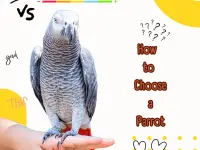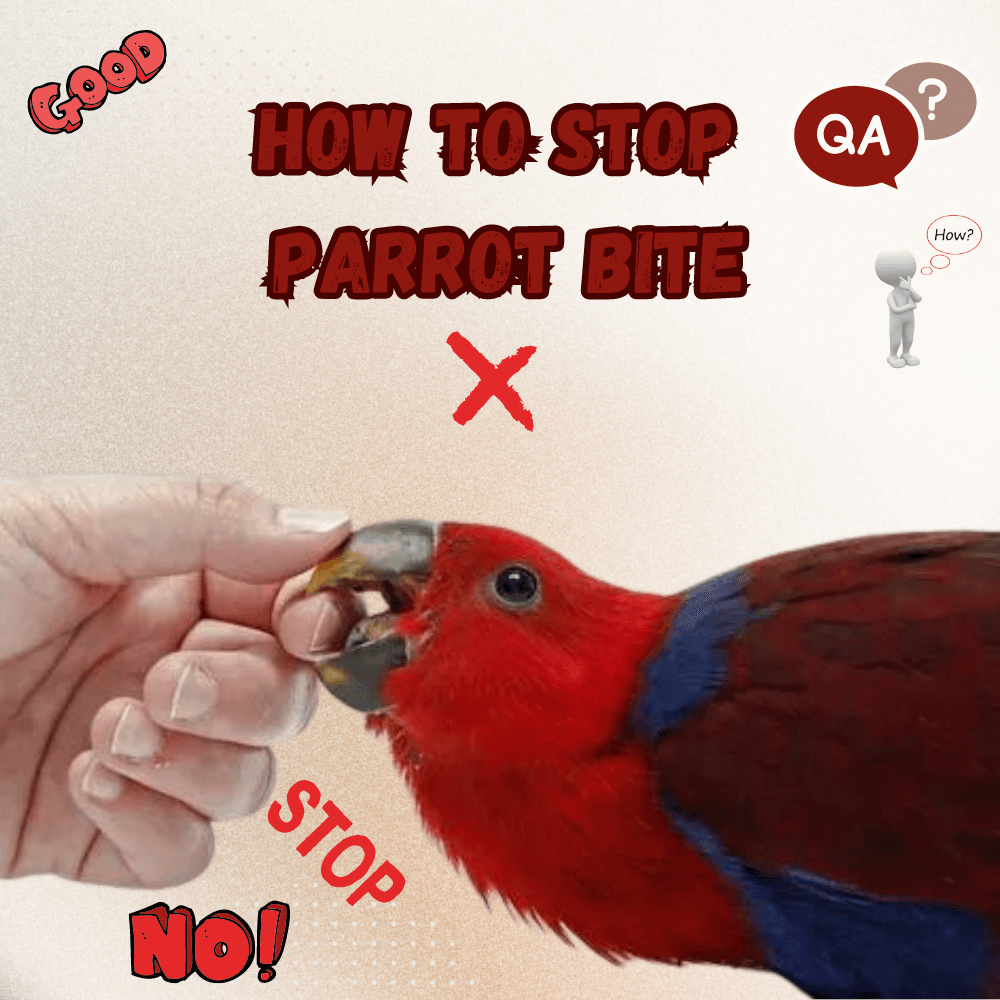
How to stop parrot bite: Parrots are social and human-friendly pets, but despite that, parrots show some behavioral problems that owners must take care of and treat, including parrot biting. Parrot bites for many reasons; If your parrot is biting, take some time to assess its behavior, and from there you can determine the best way to deal with that behavior.
Notice when the parrot is biting
- Watch the time each time the parrot bites you. Make notes about the circumstances surrounding the bite. Were you holding the parrot the moment it bit you? Was he inside or outside the cage? Was the biting a result of you giving the parrot food or a food reward? The more details you record about that condition, the better.
- Follow common occurrences and patterns of when budgies bite. If he tends to bite when he hears noises or when he is picked up by unfamiliar people, his stress could be the cause of the biting. If your parakeet tends to bite during the night when it has been out of the cage for a long time, it could be because it is tired and wants to go back to its cage.
Use a negative response when the parrot is biting
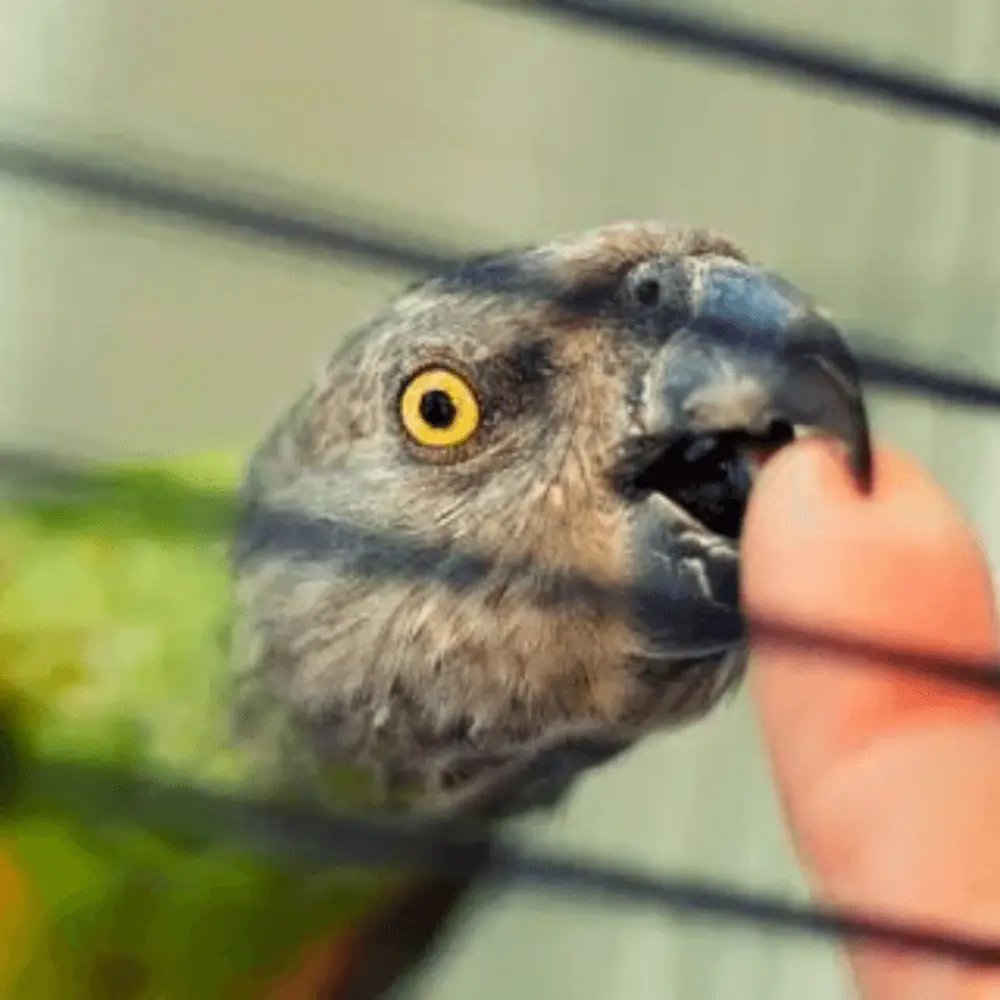
Follow a regular feeding and sleeping schedule
- You should settle on the same type of seed and grain that you buy at the pet store and include it in your parrot’s diet. However, the parrot may get bored of eating the same meal every day, and at that time you can diversify the diet by adding vegetables and roots to the daily diet.
- Notice the times when the parrot seems to want to rest. Make sure you give him a chance to really rest during these times, as your parrot may become agitated and bite you if you try to pick him up when he’s tired. Respect the parrot’s desire to rest to make him feel healthy and happy, rather than causing him distress.
Handle your parrot carefully
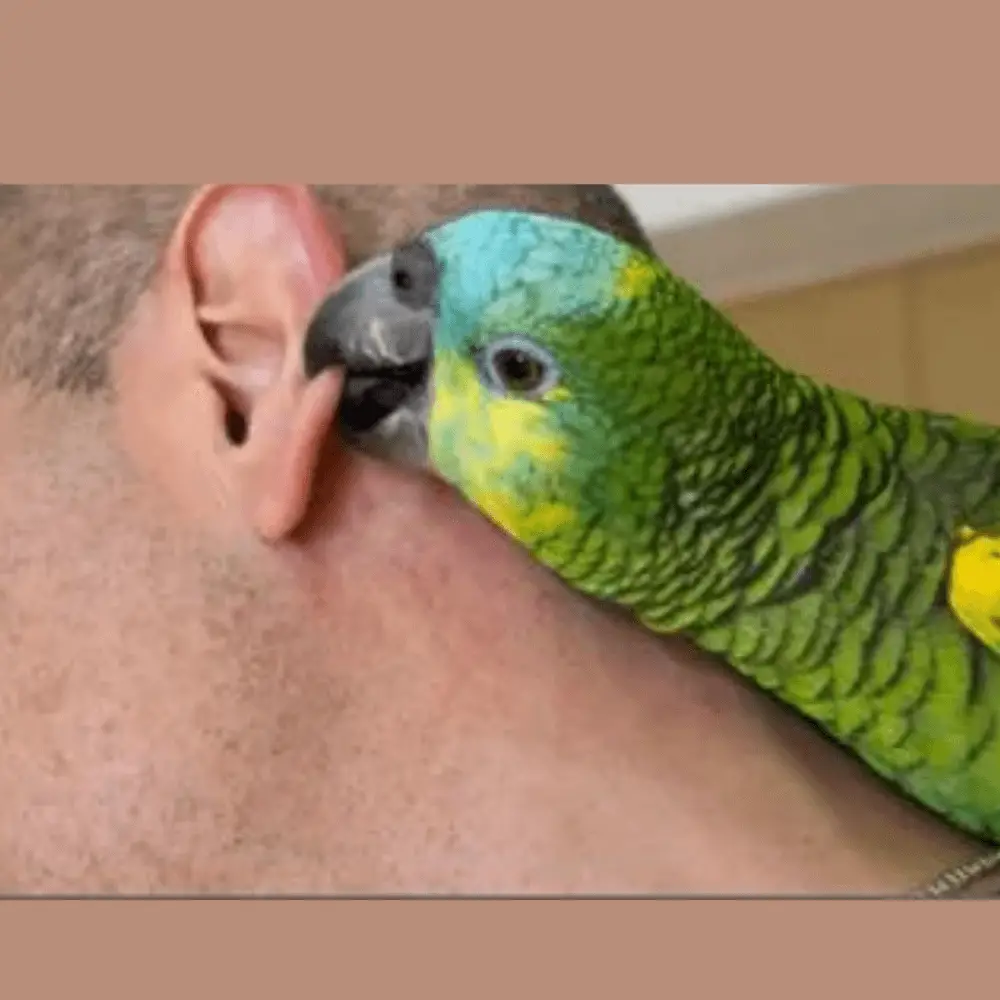
- Allow the parrot to move towards you. Don’t pull him towards you, but let him choose to climb onto your hand or finger.
- Do not follow the parrot from one room to another. He could consider that a stalker. In the wild, predators will chase parrots in the same manner. Never make a parakeet feel like you’re chasing him, so allow him to fly freely from room to room.
- Talk to your parakeet in a soft voice and offer him food and toys. This may be enough to make him feel calm, and it also builds a strong bond between you. Allow him some time to get used to you and do not force him in any way to communicate with you.
Give him enough toys
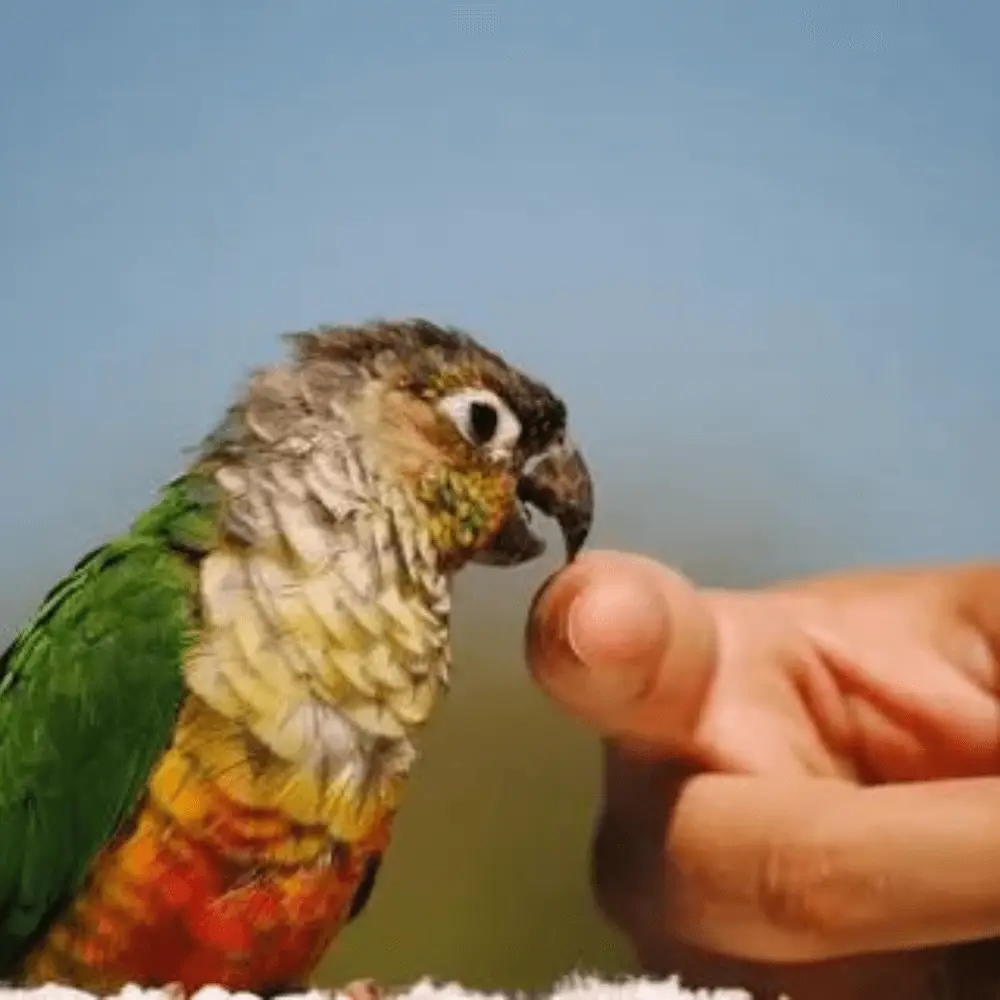
- Stimulating toys, such as an old toilet paper roll or rolled-up paper, are good options for parrots, who use similar objects in the wild to build their nest. He’ll enjoy shredding paper while in the cage.
- Go to a pet store and look in the bird toys section. Most parrots prefer stimulating toys that can be a way to get hidden food. The parrot will try to disassemble the toy to get a reward. This option is very useful if you are out for a long time during the day.
- Interested in playing with your Parakeets need to feel your attention, so take time out of your day to sit next to them, especially if you only have one parrot. Alternatively, you can buy another parrot if you don’t have time to spend with the parrot every day.
Consider the life changes surrounding the parrot
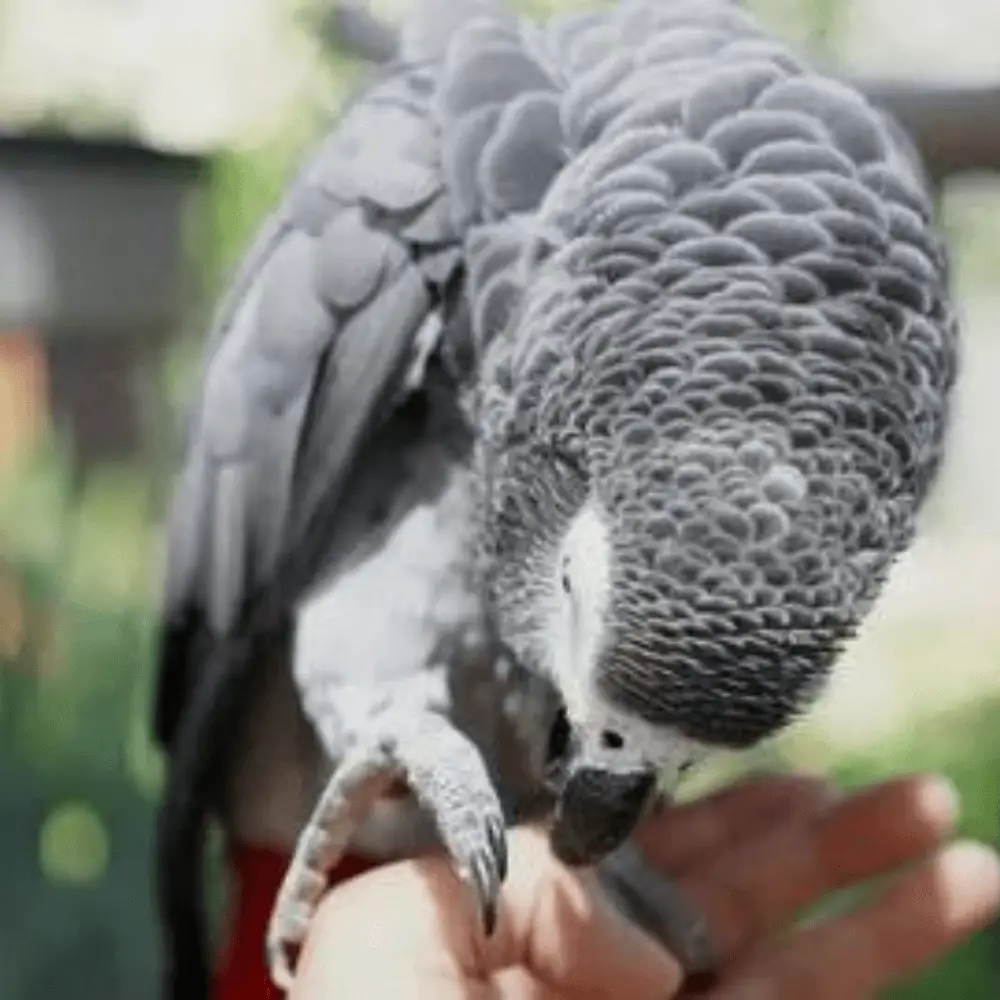
Is there a change in the people of the house? Have you moved to a new home? Did you bring another pet into your home? Is there some construction work outside making noise? The presence of such changes may cause stress to the parrot and lead to it biting.
Don’t lift him too much and make sure he gets a good diet and enough water. If outside noises are stressful for your parrot, bring a household noise machine that makes sounds to distract your parakeet from the outside world.
Don’t shout at the parrot
The result of screaming can appear in two directions; Yelling can agitate the parrot and cause it to repeat the behavior in order to get the expected response. It may also lead to him biting as a result of his fear or stress. Do not yell at the parrot in response to a bite.
Avoid resorting to punishment
Punishment increases feelings of stress. It can cause agitation and affect the bond between you and your parakeet, so avoid punishing your parrot if you want to stop the behavior.
- Do not scold the parakeet with spray bottles to stop it from biting, as your reaction may be perceived as threatening.
- Do not put your parrot in a cage as punishment. The cage is a safe and quiet place for the parrot. If you put him in his cage in response to his biting behavior, this may be a reward for the behavior.
Do not entertain the parrot with food and toys
Birds tend to show signs of being agitated, such as pulling back or ruffling their feathers. Many bird owners ignore these signs, and the parrot will resort to biting, so be aware of the parrot’s body language.
7 TIPS ON HOW TO STOP YOUR BIRD FROM BITING
SOURCE: Flying Fids
Related article:
- Cockatiel bite
- How bad is a macaw parrot bite
- How to train parrot not to bite
- The parrot and bites of cat
- Why does my parrot bite




















